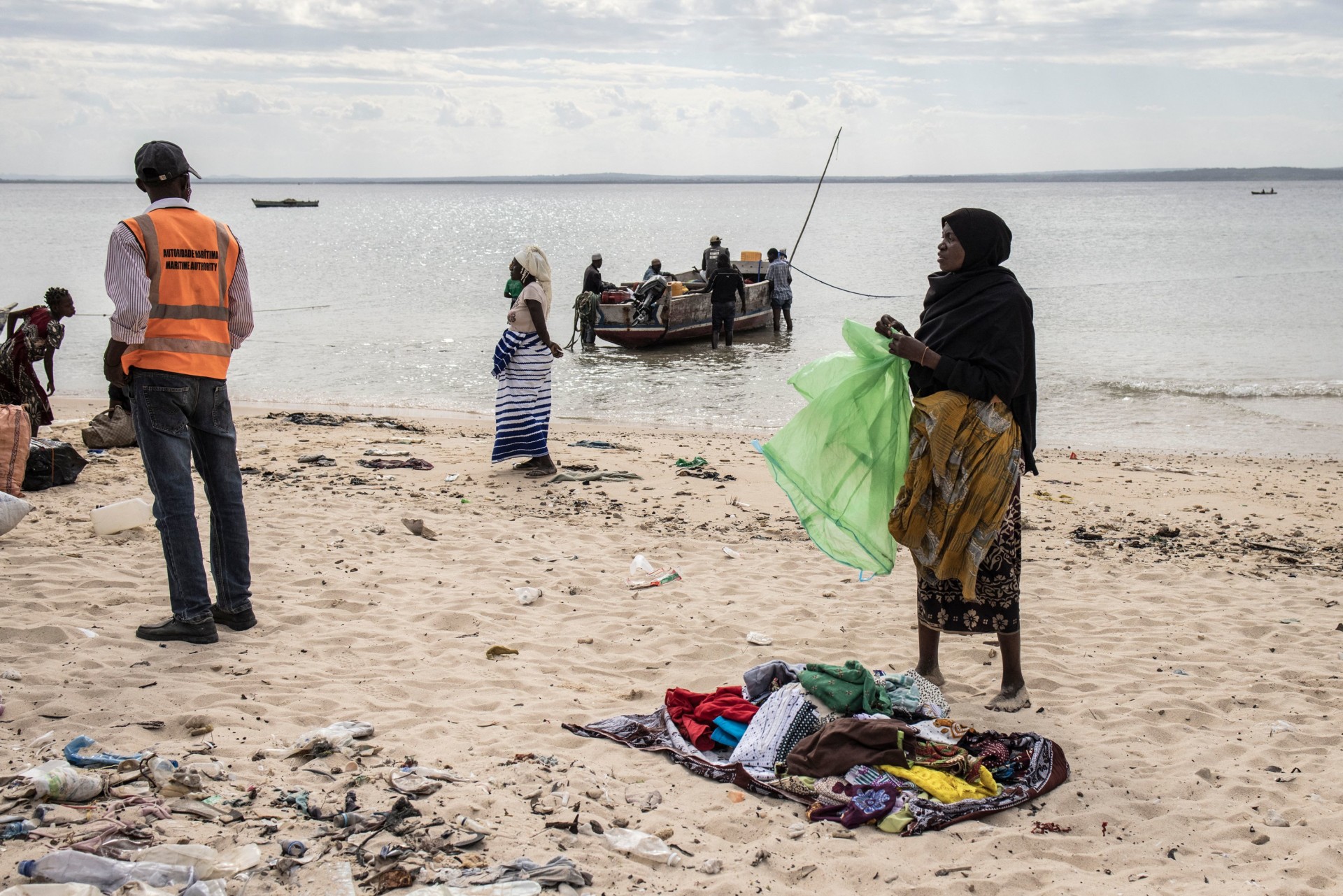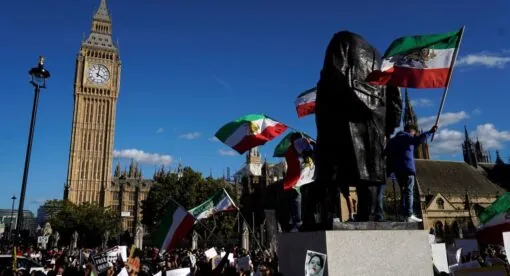A recent attack on the northern Mozambican town of Palma by Ahl al-sunnah wa al Jamma’ah, a group affiliated with the Islamic State, has raised questions about its origins and rapid success in a part of the world few would associate with Islamist violence.
On March 24, more than a hundred Islamist fighters affiliated with the Islamic State seized the northern Mozambican town of Palma. They held it for 10 days, looting it and terrorizing its inhabitants. The attack provoked the French oil giant Total, which uses Palma as a base, to declare force majeure – meaning it declared itself free of its contractual obligations – and suspend a natural gas project estimated to be worth billions of dollars.
The group in question, known locally as Al-Shabaab and more formally as Ahl al-Sunnah wa al Jamma’ah (ASWJ), has only been in existence for a few years. It was largely unheard of outside Mozambique until August 2020, when it overran the town of Mocímba da Praia, which it still controls. ASWJ now appears to act with impunity throughout the province of Cabo Delgado, where it has been responsible for thousands of deaths and displacement of more than 700,000 residents, many of them children, provoking an “epic” humanitarian crisis.
All this begs for explanations regarding the nature of ASWJ, its ties with Islamic State, and its rapid success in a part of the world few would associate with Islamist violence. The answers matter, given ASWJ’s apparent potential to grow to become a bastion of the Islamic State that threatens southeast Africa, especially given the Mozambique government’s inability to stop it. Moreover, the western edge of the Indian Ocean is the object of intensifying competition between China, India, Russia, and France (which has territory offshore in the Mozambique Channel).
The fact that ASWJ’s rise comes as such as surprise reflects the lack of attention given to Cabo Delgado, one of Mozambique’s poorest provinces; the Lusophone country’s relative neglect among scholars and analysts, at least compared with its more prominent and Anglophone neighbors; and the Mozambican government’s deep-seated preference for insisting that all is well when clearly it is not.
A History of Neglect
Mozambique’s history is one of poverty and lack of development. The Portuguese invested little in their former colony and in fact made no real effort to govern it until the 20th century. Then came the destructive war of independence (1964-1974) and the even more destructive civil war between the Frente de Libertação de Moçambique (FRELIMO) and the opposition Resistência Nacional Moçambicana (RENAMO) (1977-1992). Peace brought not prosperity but rather stagnation and further poverty, with much of the blame falling on the rent-seeking elites of the ruling FRELIMO party. Revelations of some of their more egregious financial dealings in 2016 prompted the International Monetary Fund to freeze loan disbursements, setting off a chain reaction that sank the country’s economy.
The loans reflect a growing problem, which is that the promise of a vast windfall owing to the country’s large natural gas deposits has further strengthened the rent-seeking instincts of the country’s elites — encouraging them to be even less responsive to the needs of the population — while raising public expectations. In Cabo Delgado, one of Mozambique’s poorest provinces, this tension has proven explosive.
In a report released in January, the Observatório do Meio Rural (OMR), a Mozambican think tank, has identified in Cabo Delgado five “internal axes of contradictions” that drive the conflict there. The first factor is age: A large population of young people are bereft of any real livelihood at a time when discoveries of natural resources, foremost among them rubies and natural gas (the recently discovered Montepuez site is considered one of the largest ruby deposits in the world), have fueled expectations and placed youths in direct conflict with older and more established people with livelihoods. Class differences are also important, which in Cabo Delgado have to do with who has access to state resources or natural resources. There also are ethnic and geographic elements: Coastal Mwanis or Makuas, who are Muslim, often conflict with the inland Makondes, who are Christian.
The report asserts that these four divisions inform the fifth: politics. The Makondes are historically aligned with FRELIMO, while the coastal Mwanis tend to have ties with RENAMO, meaning that historically their relationship with the state has been defined by confrontation.
All of these things came to a head when, for example, the state acted brutally to clear artisanal ruby miners from Montepuez to the benefit of a business consortium tied to FRELIMO or when the state forced coastal communities off their land to make way for infrastructure related to natural gas production. The recent violence has also displaced thousands of people, disrupting commerce and the flow of goods from north to south and from the coast to the interior, making agriculture difficult and causing food prices to rise. The state, meanwhile, has either abandoned areas and the people who live in them (like Mocímba da Praia) or preyed on them.
The Surprising Rise of ASJW
Mozambique’s Muslims are an economically, ethnically, ideologically, and politically diverse community that, like elsewhere in sub-Saharan Africa, is subject to what might be described as traditionalist currents and other currents described variously as Islamist or even Wahhabist, though that does not necessarily imply rejection of the state. In fact, Mozambique’s semi-official Islamic Council is identified with the nation’s Wahhabist-oriented communities.
Mozambique expert Eric Morier-Genoud traces the ASJW’s origins to 2007, when a young man named Sheikh Sualehe Rafayel, a local who had radicalized in Tanzania, formed his own community after breaking away from a Wahhabist community. He and his followers clashed violently with other Muslims and with the state-backed Islamic Council. Sheikh Sualehe’s group may or may not be directly connected to the group that eventually became ASJW, but it did set a trend of an Islamist rebellion against state-sanctioned Islamist institutions, which, with state support, attempted to suppress it.
ASJW itself emerged in 2014, when another cleric, Sheikh Abdul Carimo, established a similar Islamist sect that the Islamic Council similarly persecuted. It clashed violently with other Muslims in 2016 and besieged a police station, which led to an altercation in which Sheikh Carimo was shot. He is reported to have died in prison in 2018. Nonetheless, the group spread into several districts in 2016 and 2017 and continues to grow. Today, besides controlling Mocímba da Praia, ASJW appears to be active throughout the province, where it moves with impunity.
Both Morier-Genoud and Liazzat Bonate, who studies Mozambican Muslims, insist on the homegrown nature of Cabo Delgado’s Islamist insurgency, whatever contacts it might have with outside organizations. The residents of Mocímba da Praia reportedly identified most of those involved in the 2017 violence as locals or foreigners who had resided in the town for a while. Today there is undoubtedly a foreign element among them, which would help explain some of the technical and military skills on display in ASJW’s carefully planned and sophisticated attacks. In June 2019 ASJW pledged allegiance to the Islamic State of Iraq and the Levant, and it is commonly considered part of or subordinate to Islamic State Central Africa Province, or ISCAP, which has established itself in the Democratic Republic of Congo. However, the extent of the ties between ASJW and the Islamic State remains unknown. The Islamic State published a video of the Palma attack, for example, but that proves nothing. According to a recent report by the Southern Africa Development Community, there are indications that ASJW receives support from individuals outside the country and ISCAP, but again, specifics are unknown.
Perhaps the best glimpse we have inside the organization comes from the Mozambican sociologist Jaõa Feijó’s recent study based on interviews of women who escaped from ASJW control. The women made clear that most of the group’s members were locals, although there were many Tanzanians, residents of both Mozambique and Tanzania who had “internationalized” abroad, and individuals from other countries. According to their testimonies, the foreigners and internationalized locals were more doctrinaire and motivated by religion, whereas many of the younger local members were essentially driven by material motives or resentment generated by abusive behavior by security forces. Feijó assessed that ASJW had succeeded in capitalizing on feelings of exclusion among the local population that incline them to rebel not just against the state but also against their communities of origin.
Presently, ASJW appears to have the upper hand. There is slow movement toward a possible military deployment sponsored by the Southern Africa Development Community, and the United States and Portugal both are providing relatively small-scale training. The government, which still by and large insists that it has everything under control, has made it hard for itself to acknowledge that this is not, in fact, the case, meaning that even if it had the wherewithal to address the myriad problems driving the conflict, it is unlikely to do so.
Regional players have thus far not weighed in on the crisis, although this might change given South Africa’s own vulnerabilities and energy needs; France’s interest at the very least in maritime security and any events that might negatively affect nearby French territories; Russian interest in the region, demonstrated recently by the deployment of mercenaries in 2019-2020 to Mozambique and interference in elections in Madagascar; and competition between China and India, which increasingly is aligned with France. It would not be surprising if some outside power were to step in. The question would be who, and with what response from the others?
Dr. Michael Shurkin is Director of Global Programs at 14 North Strategies. Dr. Shurkin has been working on African security for roughly 16 years, including more than a decade at the RAND Corporation and several years as a political analyst at the Central Intelligence Agency. Shurkin holds a Ph.D. in history from Yale University and also studied at Stanford and the Ecole des Hautes Études en Sciences Sociales in Paris, France. He tweets at @MichaelShurkin.
The views expressed in this article are those of the author and not an official policy or position of the Newlines Institute.







